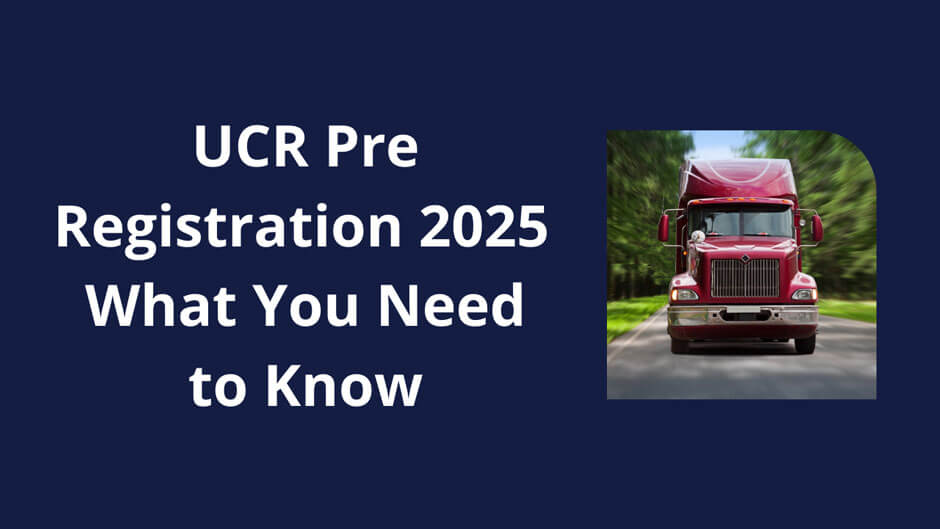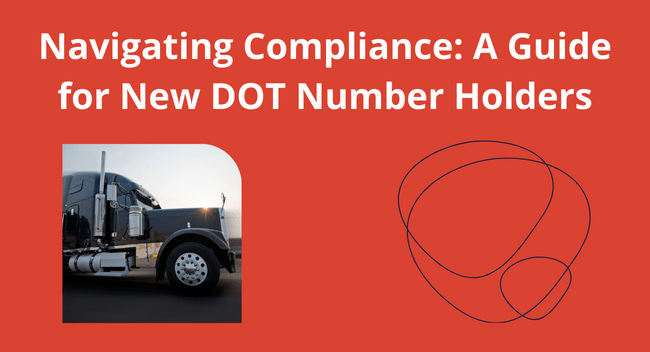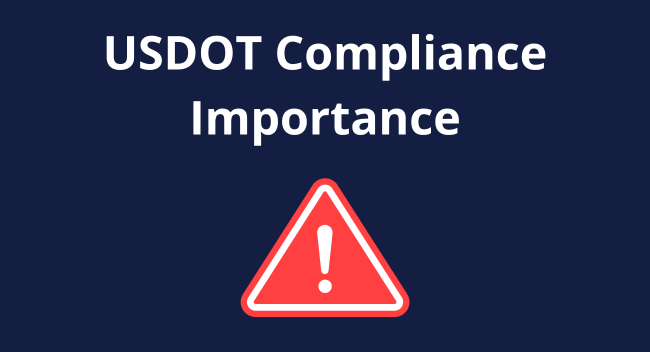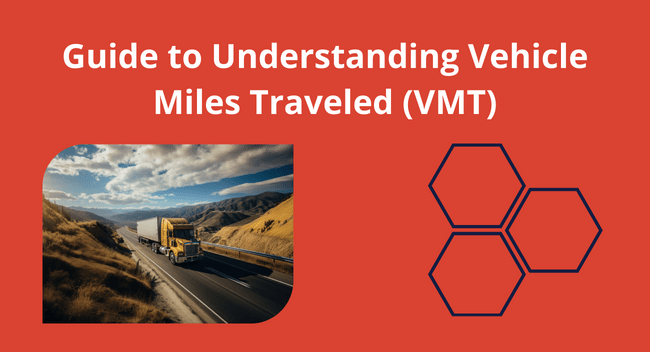Commercial motor vehicles and businesses in interstate commerce in the United States require several legal documents and registrations to operate.
One of the most vital approvals for trucking companies is the Unified Carrier Registration (UCR). This federal program requires motor carriers, freight forwarders, brokers, and leasing companies to register annually with a participating state where they operate.
As we approach 2025, staying informed about UCR pre-registration and its implications for your company’s operations is essential. This article provides a step-by-step guide on how to register.
What Is UCR Registration?
The Unified Carrier Registration (UCR) is a federal program managed by the Federal Motor Carrier Safety Administration (FMCSA). It is designed to provide oversight and regulation for commercial motor vehicle companies involved in the interstate transportation of goods.
Under UCR regulations, trucking companies must register annually with one participating state and pay a registration fee based on their fleet size.
Failure to register or pay the required fees can result in penalties, including being unable to operate in interstate commerce.
The primary purpose of the UCR is to fund the US Department of Transportation’s (USDOT) motor carrier safety programs.
The UCR DOT also helps to maintain accurate and up-to-date records of motor carriers, brokers, freight forwarders, and leasing companies that operate in multiple states.
This information is crucial for state and federal authorities’ safety inspections and compliance audits.

Unified Carrier Registration (UCR): Who Is Required?
The UCR Program has a Decision Tree to help you determine whether you must register. Generally, the following are required:
- Motor carriers of property, both for-hire and private, whether or not they are considered a non-exempt motor carrier
- For-hire motor carriers that transport passengers (at least ten passengers + driver)
- Broker or leasing company of commercial motor vehicles without drivers to interstate motor carriers
- Freight forwarder companies
*Motor private carriers of passengers are not included in the UCR
Participating US States: Unified Carrier Registration
Currently, 41 states in the US participate in the UCR program. For qualifying commercial motor vehicles that operate in non-participating states, the carrier must still comply with UCR regulations by registering with a neighboring state or through an authorized service provider.
Here is the list of participating states for 2025:
- Alabama
- Alaska
- Arkansas
- California
- Colorado
- Connecticut
- Delaware
- Georgia
- Idaho
- Illinois
- Indiana
- Iowa
- Kansas
- Kentucky
- Louisiana
- Maine
- Massachusetts
- Michigan
- Minnesota
- Mississippi
- Missouri
- Montana
- Nebraska
- New Hampshire
- New Mexico
- New York
- North Carolina
- North Dakota
- Ohio
- Oklahoma
- Pennsylvania
- Rhode Island
- South Carolina
- South Dakota
- Tennessee
- Texas
- Utah
- Virginia
- Washington
- West Virginia
- Wisconsin
Non-Participating US States: Unified Carrier Registration
- Arizona
- Florida
- Hawaii
- Maryland
- New Jersey
- Nevada
- Oregon
- Vermont
- Wyoming

Step-by-Step Guide to UCR Pre-Registration 2025
The UCR registration process is relatively straightforward. You only need to fill up an online form and input the following:
- registrant’s name
- address
- USDOT number
- pertinent information about the fleet (make, model, license plate, state, VIN number, gross vehicle weight rating, etc.)
The registration can be done directly through the Unified Carrier Registration Plan website at https://plan.ucr.gov/ or through a third party such as DOT Compliance Group.
The annual fee will depend on the size of the feet. For example, a fleet of 3 to 5 commercial motor vehicles owned or operated by exempt or non-exempt motor carrier, motor private carrier, or freight forwarder has a fee of $138 per entity. If working with a broker or leasing company, there is a $46 fee per entity.
It is essential to check with your state’s participating office for accurate fees.
After completing the registration and payment process, you will receive a UCR receipt as proof of compliance. You must keep this document in your vehicle at all times, as it may be required during roadside inspections.
Is UCR Pre-Registration Necessary?
Pre-registration for UCR is not mandatory, but it is highly recommended.
By pre-registering, you can ensure that your company’s information and fees are updated before the deadline. Failure to update on time may result in additional penalties and late fees.
Key Deadlines for UCR Pre Registration 2025
The UCR registration period typically begins on October 1st and ends on December 31st of each year. For the upcoming year of 2025, pre-registration will open in September and end in December.
We recommend completing your UCR registration well before the deadline to avoid any last-minute issues or delays. Starting the process early also gives you time to double-check your information and make any necessary updates before the deadline.
UCR Auto-Renew Program
The Unified Carrier Registration Plan offers an Auto-Renew Program to simplify the registration process. This program allows companies to automatically renew their registration and make payments for each year’s fees. However, you must still update your information if anything has changed.
You may also work with a third-party provider that offers UCR services, such as DOT Compliance Group. These companies can handle the entire registration process from start to finish, ensuring accuracy and timely compliance.

Common Mistakes to Avoid During UCR Registration
When registering for UCR, it is crucial to pay close attention to ensure all information provided is accurate and complete. Some of the most common mistakes include:
- Incorrect USDOT number
- Providing incorrect or outdated vehicle information
- Using the wrong fee schedule based on fleet size
To avoid these mistakes, make sure to double-check all information before submitting your registration. It may also be helpful to have a second person review your information for accuracy.
Submitting incomplete or incorrect information can result in delays in processing your registration, as well as additional fees and penalties. It is essential to take the time to accurately fill out the form and provide updated information each year.
Consequences of Failing to Register for UCR 2025
Failing to register for UCR can result in severe consequences, including legal and financial risks. Non-compliant companies may face penalties of up to $1,000 per day, as well as being blocked from operating across state lines.
Enforcement agencies track registration through various methods, such as random roadside inspections and reviewing records during audits. It is essential to keep your UCR receipt with you at all times to prove compliance if requested.
How DOT Compliance Can Help You Through Pre Registration
Businesses that operate commercial motor vehicles need a partner who can assist them in navigating the complex requirements of UCR registration.
DOT Compliance Group has been helping companies with their compliance needs for years, and our team of experts is well-versed in all aspects of UCR pre-registration.
By working with us, you can ensure that your information is accurate and up-to-date, avoiding any penalties or late fees. We also offer a convenient auto-renewal program to simplify the registration process for our clients.
In addition to UCR pre-registration services, we also provide other compliance services such as FMCSA safety audits, drug and alcohol testing programs, and driver qualification file management.
With DOT Compliance Group by your side, you can focus on running your business while we handle the compliance aspect.
Don’t risk non-compliance and facing penalties – contact DOT Compliance Group today to learn more about how we can assist you with UCR pre-registration and other compliance needs.








0 Comments